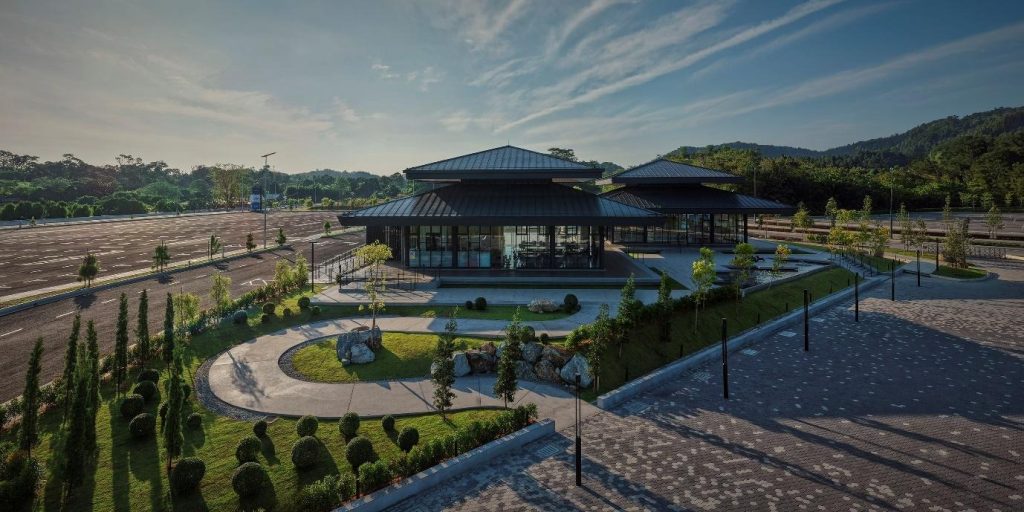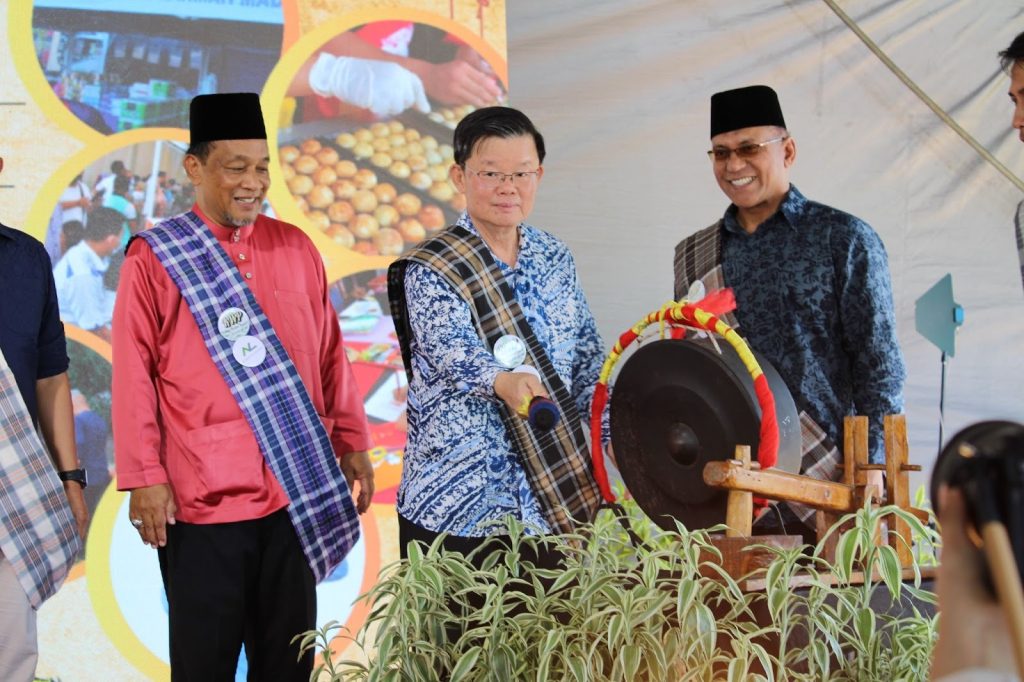Budget designed to combat a multitude of challenges
Contributed by Sulaiman Saheh
Budget 2021 is described as an expansionary budget designed to combat the multitude of challenges amidst a tumultuous economic environment and uncertain political landscape against the backdrop of the on-going battle against Covid-19. The RM323bil budget, the largest the country has seen, has its goals anchored on enhancing the people’s wellbeing especially those affected by Covid-19, ensuring the nation’s business continuity and strengthening economic resilience.
With such budget size that effectively pushes the budget deficit to 5.4% as a percentage of GDP, the economy is expected to grow next year in the range of 6.5% to 7.5%. While the budget allocation was huge, provisions that directly boost the property sector were rather targeted. This is understandably so as the focus was to strengthen the roots of the economy rather than treating the superficial symptoms for a more sustainable and solid growth of the market at large by focusing on expenditures with high multiplier effects.
Direct measures
The Budget provides some direct measures to increase home ownership especially for first time homebuyers, as well as the more vulnerable groups of the market. Most other property sectors are expected to benefit indirectly from the focus given to spur growth in high-value services activities, industrial investments and infrastructure enhancements.
Also, in continuing to emphasise inclusiveness in economic growth and with particular reference to Bumiputera’s holdings in real estate, Pelaburan Hartanah Bhd is to continue its role with an allocation of RM750mil under the 12th Malaysia Plan. This includes replicating their strategies to optimise the value of Malay Reservation Lands in strategic high-potential locations. For the residential sector, the full stamp duty exemptions on instruments of transfer and loan agreements for first time purchasers for house price of up to RM500,000 from the existing RM300,000 will help reduce the upfront financial burden of home buying.
Enforced for the period from Jan 1, 2021 to Dec 31, 2025, this would ease first time home buyers especially within the B40 and M40 group, and encourage home ownership - notwithstanding the other underlying issues such as affordability, house prices and disposable income levels in the market. Though it is unclear, we hope that such exemption is applicable for purchases from both developers in the primary market as well as in the secondary market. This would help expand the options for these first time home buyers as well as complementing Penjana shortterm economic recovery plan’s RPGT exemption and Home Ownership Campaign that are in place to stimulate property market activities.
White knights
In addition, stamp duty exemptions are also provided for white knight contractors and original buyers of abandoned housing projects that have been vetted and approved by the Ministry of Housing and Local Government. This will encourage white knight contractors to revive abandoned projects and bring those unfortunate buyers hope of finally possessing their completed units.
The focus on affordable, low-cost and medium-cost housing provision through the various government agencies is to continue with a RM1.2bil allocation for various programmes including for 14,000 Program Perumahan Rakyat units, 3,000 Rumah Mesra Rakyat by SPNB, maintenance and repair of low-cost homes and for the Civil Service Housing Programme. Continued focus on this segment is welcomed but based on past history, the challenge is in the implementation, efficiency and monitoring.
The rent-to-own scheme is also being promoted through a collaboration between the government and selected financial institutions to be implemented until 2022 for 5,000 units of Pr1ma housing. The scheme that was first introduced in the last budget under the past government, seems to have shifted from being a generic programme subject to a maximum house price of RM500,000 with an announced budget of RM10bil, to being focused on Pr1ma houses only.
There are similar collaborations in place over the past year driven as commercial ventures where the rent-to-own scheme’s concept has been implemented for some of the participating private developments through partnerships with certain banks. It is unsure how the response to such programmes or the government’s scheme have been in the past year. Nevertheless, such a scheme is a good start to opening up new options to increase the market’s accessibility to housing.
MM2H programme
A point to note is on the suspended MM2H programme of which the budget has fallen silent. The MM2H Programme was temporarily suspended earlier this year, in line with the government’s decision not to allow foreigners to enter Malaysia following the outbreak of Covid-19 pandemic.
The programme was originally scheduled to recommence this month but is now uncertain due to the recent spike of Covid-19 cases in the country. For the non-residential sector, emphasis was placed especially on improving the business environment to drive investments as well as strengthening key sectors, and enhancing economic resilience through public infrastructure investments. For the industrial sector, RM1bil special incentive package is allocated for high value added technology investments, to support R&D activity in aerospace as well as electrical and electronics sectors in Batu Kawan Industrial Area, Penang and Kulim, Kedah with an additional RM500mil for High Technology Fund.

Sulaiman Saheh is the director of research for global real estate consultancy Rahim & Co International Sdn Bhd.
These augurs well with the relaxation of tax incentive conditions extended until Dec 31, 2022 for principal hubs, a new tax incentive for the establishment of the Global Trading Centre, increase sales value limit for activities at Free Trade Zone and bonded warehouses, and on-going tax incentives to be extended to 2022 for maintenance, repair and overhaul for aerospace, repair of ships, bionexus status and economic corridor developments. Coupled with the proposed improvement to industrial park facilities including the RM100mil for infrastructure maintenance, internet improvement (RM42mil Jendela programme), water treatment plant and water supply systems, the high-multiplier industrial sector is to have a better position for growth.
This would be complemented with the expansive infrastructure investments proposed, be it transport-based infrastructure or regional development infrastructure. Some RM15bil is allocated for transport infrastructure projects: Pan Borneo Highway in Sabah and Sarawak, Gemas-Johor Bahru electrified rail double tracking project, Klang Valley Double Tracking Project (Phase 1), Rapid Transit System Link (JB-Woodlands) and MRT3 in Klang Valley; while the High Speed Rail project is also to continue, subject to discussions with the Singapore Government. A number of selected Regional Development Corridors projects are to continue including Kwasa Damansara development by EPF. These projects indeed have its benefits, and plans to roll them out would be much welcomed, but it remains to be seen how the market grows in the next 12 to 18 months - and whether its recovery amidst the other challenging factors will be opportune for the various stakeholders.
Hardest hit sectors
One of the hardest hit sectors, the tourism and hotel sector, would have called for more direct programmes and measures to help the sector players back on their feet. Announcements made with regards to the sustainability of the tourism industry lack direct measures that hotel operators and travel agencies hoped for, like measures to reduce costs to travelling and hotel accommodation coupled with those that improve disposable income of prospective travellers, hence promoting domestic as well as international tourism once the borders are open. The budget focused more on upkeeping tourists’ hot spots and facilities, as well as skill- and placement-related assistance for employees in the industry - of which are important but recent reports portray concerns on its sufficiency.
The Malaysian Association of Hotels was highlighted in the news lately with their deep concerns with the lack of immediate assistance to stakeholders suffering from reduced cash flow due to both domestic and international travel restrictions while Malaysian Association of Tour and Travel Agents emphasised on more could be done for the tourism industry employees broadly rather than just the aviation sector as well as the loan moratorium should be extended up to June 2021 for tourism businesses.
Finally, while we commend the government’s strategies and proposed allocations to sustain the domestic economy in the immediate-term with proactive plans to fuel growth and regeneration, direct measures to improve the people’s purchasing power and the consumer sentiment is paramount as there is heavy reliance on domestic consumption and expenditure to keep the economy running.
Stay ahead of the crowd and enjoy fresh insights on real estate, property development, and lifestyle trends when you subscribe to our newsletter and follow us on social media.











































